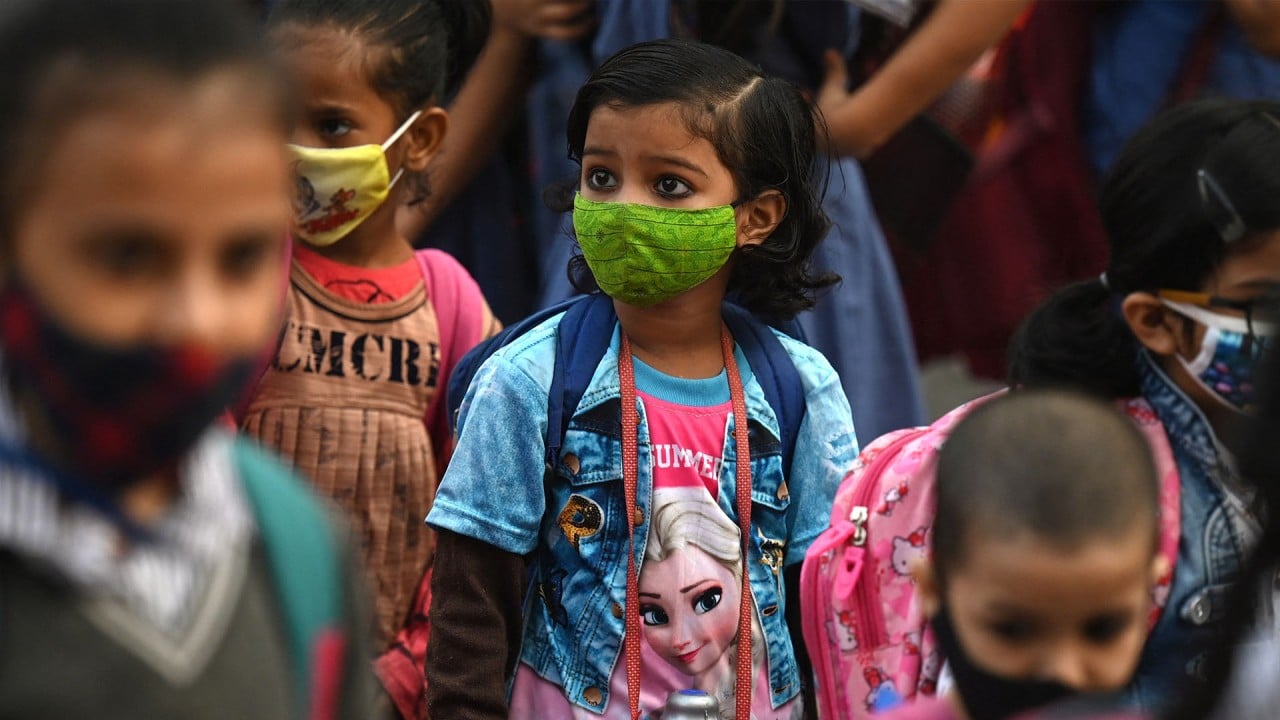
WHO calls for action as Omicron coronavirus variant spreads to 57 countries
- Director General Tedros Adhanom Ghebreyesus was dismissive of reports suggesting the strain led to a milder course of Covid-19, saying it was too early to say
- ‘Act now,’ he warned, saying it would be too late if countries waited until their hospitals started to fill up
The Omicron variant of the coronavirus has been detected in at least 57 countries, according to the head of the World Health Organization (WHO), Tedros Adhanom Ghebreyesus, calling on governments to take action sooner rather than later.
In South Africa, the number of Omicron cases is increasing quickly. “However, Omicron was detected when transmission of Delta was very low, so it had little competition,” Tedros said on Wednesday.
He was dismissive of initial reports suggesting the Omicron strain led to a milder course of Covid-19 in South Africa, saying it is too early to say.
Tedros called on governments to take preventive measures seriously and implement them.
“If countries wait until their hospitals start to fill up, it’s too late,” he said. “Don’t wait. Act now.”
His comments came after the head of the world’s largest vaccine manufacturer, the India-based Serum Institute, described plans to reduce production of the AstraZeneca jab against Covid-19 by at least half.
Serum Institute chief executive Adar Poonawalla cited the failure of the Indian government to place any new orders as the reason for his plans to slash production, in comments to Indian television channel CNBC-TV18.
He also said that orders from the UN vaccine initiative were coming in very slowly.
“I am going to be reducing the production by at least 50 per cent to begin with, going forward on a monthly basis, until the orders again pick up either in India and the world,” Poonawalla said.
The company currently makes 250 million doses of the AstraZeneca vaccine every month. The shot is sold in India under the name Covishield.
Earlier this year, the Serum Institute was chosen to be the main supplier for the UN Covax Facility vaccine initiative, which seeks to improve poorer countries’ access to vaccines amid dramatic inequalities worldwide.
Poonawalla’s company initially provided millions of doses abroad, either supplying countries directly or through the Covax scheme.
However, when India faced a severe wave of cases of Covid-19 in spring, the Indian government responded by stopping exports of the jab, only recently allowing them to resume. Many poorer countries were forced to seek alternative sources of the shot in the interim.
In India, some 60 per cent of the population has received at least one vaccine dose. Infection numbers have been very low for months since the spring wave came to an end, even though many people no longer follow preventive measures.
Studies show that most of the more than 1.3 billion people in the country have antibodies, either thanks to vaccines or after recovering from the disease.
The Indian government has not yet announced plans for any booster campaigns.


